- Home
- John Jakes
The Seekers Page 25
The Seekers Read online
Page 25
He had left Kent and Son early, unable to concentrate on his work. He’d roamed streets he couldn’t remember, attempting to do the impossible—forget.
From the Common rang the cries of a band of small boys rolling hoops. Leaves streamed down from the trees under whose boughs his father had strolled while courting his first wife. The recurring cough brought Gilbert to a halt suddenly, a lace kerchief at his lips.
In a moment the spasm passed. He put the kerchief away and walked on.
The light had leached from the sky, leaving little more than a ribbon of bright amber beneath clouds lowering in the west. Gilbert drew Captain Lewis’ letter from his coat. How pointless to carry it about, he thought. Harriet, occupied with baby Amanda, wouldn’t be interested. A corner of the letter’ snapped in the autumn breeze as he remarked mentally that Abraham had certainly been right in one judgment.
Harriet’s concern for Jared had only been pretense, a gambit to employ against Abraham in order to hurt him. Since Abraham’s disappearance, She had barely spoken to the boy. Only from Gilbert did he ever hear a cordial word.
But it was to Jared’s father that Gilbert’s thoughts returned as he slowly ripped the letter into long strips, then tore each strip into smaller squares, finally letting the whole catch the wind and rise upward, blown and scattered in the fading amber light. The figures of the boys with their hoops were growing indistinct. Shadows covered the Common.
Objectively, with no sense of superiority, he said to himself: I have never been strong and never shall be. But poor Abraham—in many ways he was weaker than I. Well, all vessels have different flaws—as I have discovered.
But I am the only one left to help Jared survive.
That responsibility bore heavily on him as he resumed his slow progress up Beacon.
How different things might have been if Abraham hadn’t caught some whore’s pox. Perhaps the journey with Captains Lewis and Clark would have restored his faith in himself and his abilities—
Ah, but speculating on that was profitless. The chance was gone, just as the pieces of letter were gone in the clouds of dead leaves and debris whirled away by the twilight wind.
A servant girl from a house near Gilbert’s went by. She carried a hamper of vegetables and a firkin of country butter. In response to her deferential greeting, Gilbert forced himself to touch the rolled brim of his beaver hat. A tall, emaciated figure in the dusk—an eighty-year-old clerk in a boy’s body, wasn’t that how Abraham had phrased it?—he gazed toward the lamplit windows of his own elegant home.
I must see that Jared does not merely survive, but grows into a sound, whole man—free of Abraham’s legacy of failure and self-hate—
He had no illusions that it would be easy. Jared did carry the Fletcher blood. He lived in a household dominated by a woman who deemed him worthless, despised his very existence and seized every opportunity to show her feelings. As to the damage to Jared’s young mind that dreadful night, who could say whether it would prove—as Gilbert often feared—irreparable?
Still, calmed by the beauty of the radiant light in the western sky, he knew he would try his best. One kind of blood—family blood; the blood of caring and compassion—must wash out the lingering traces of other, uglier blood that had marked the walls of the Kent house.
Was it possible? Though he vowed to try, it didn’t seem so—
Then he thought of his father.
Gilbert stopped again, transfixed by the last golden sunshine under the darkening clouds above the Charles River. His eyes reflected the light like coins. From boyhood he recalled fragments of long conversations with Philip.
What was America if not the eternal promise of beginning again? Philip Kent had sensed that promise long before he first stepped onshore.
True, in his later years, he had rejected Jefferson’s visions of an expanding nation. But to Gilbert that rejection was superficial, overridden by a deep and abiding kinship with Philip’s most basic convictions. He and his father might differ on geography but they’d never had any fundamental differences about the promise of the land. They believed passionately in the enduring hope of change, renewal, rebirth that America’s free air made possible—
His upturned face caught the last glimmers of the sunset. He felt a moment of almost supernatural closeness to his father. It was as if Philip stood near him in the shadows of evening, a presence at the edge of his vision, a powerful force that diminished his pain and strengthened his courage—
Unwilling to break the moment, Gilbert remained motionless, causing whispered comments from pedestrians hurrying by. Finally he roused himself, shivering in the sudden bite of the sunless wind. The aroma of wood smoke from chimneys enticed him homeward—with a quicker step now.
He would exchange trivial pleasantries with Harriet at dinner, rock and coo at baby Amanda for a few minutes afterward, and then he would speak with Jared. He would begin the long, hazardous and difficult job of raising Abraham Kent’s son to manhood.
On his front stoop, Gilbert Kent paused one final time to stare into the western heavens, all clouds of ebony. His shoulders lifted, as if in anticipation of a struggle.
He turned and entered his house.
* Book Three *
Voices of War
Chapter I
Jared
i
IN THE GLOOM OF the vast building, the boy’s breath plumed as he pointed to the plank-covered pits. “Ten blocks of your best pond ice, Mr. Dawlish. Delivered to the house by six o’clock tonight. Six o’clock sharp. The poultry’s due to arrive from the country by half past.”
He extended a handful of coins. The ice house owner didn’t take them. “Anyone notice you two coming in here?”
The boy bristled. “Is that important? Money’s money.”
“Sometimes. Kent money ain’t the most popular in Boston these days.”
The slim but sturdy-looking boy stuffed the coins in his pocket and seized the hand of the little girl beside him.
Though only eight years old, in her cape and bonnet of purple velvet she resembled a miniature woman—as was intended. She had her mother’s pale skin, brilliant dark eyes and hair. But her mouth was more generous, her expression more cheerful—never marred by the sourness the boy associated with Uncle Gilbert’s wife, the girl’s mother.
“Come, Amanda,” the boy said. “Someone else will sell us ice.”
Dawlish snatched the boy’s forearm. “I’ll deliver the order! Just do me a favor. Leave by the rear door.”
Disgust showed on Jared Kent’s rather sharp-featured face. He slapped the coins into Dawlish’s hand and ushered Amanda toward the indicated door, walking with long, swift strides. Like his cousin, he was superbly and expensively dressed: nankeen trousers, a fine linen shirt with a frothy neckerchief, a vest cut straight across the bottom. Jared’s uncle didn’t insist he wear a striped vest, the symbol of Democratic-Republican sympathies. Gilbert Kent frequently appeared in such a vest, though—scandalizing most of his Boston peers.
From beneath Jared’s vest hung a fob, without which no gentleman, whatever his age, was well dressed. Jared lacked a watch to attach to the hidden end of the fob, but that didn’t matter—only the fob’s display counted.
He’d received the fob from his uncle the preceding Christmas. The obverse of the medal at the bottom of the broad green ribbon had been struck in the pattern of the tea-bottle symbol. There was also a Latin inscription:
Cape locum et fac vestigium.
The reverse bore the words Kent and Son, and the year. Jared liked wearing the fob as much as he hated wearing his tight-fitting jacket with its ridiculous short tails, a perfect duplicate of the adult male style.
As the cousins stepped into the surprisingly warm sunshine of a Saturday in early December 1811, the varnish on the leather brim of Jared’s cap glittered with highlights. He pointed suddenly.
“ ’Ware the cat.”
Amanda hiked up her skirts and hopped over the dead animal rotti
ng in the alley’s drainage channel.
“Jared.”
“Mm?”
“Why didn’t that man want Papa’s money?”
Head tilted back, the boy was eyeing the slope of the roof at the rear of the ice house. Then he turned his attention to a pile of empty crates at the end of the building. His tawny hair, worn three inches long in the current youthful fashion, shone in the sun. His sky blue eyes darted from the crates back to the roof. Finally he answered the question.
“Because Uncle Gilbert is about the only rich man in Boston who believes we should go to war, I guess.”
Amanda covered her mouth. “Mama would take the birch rod to you if she heard what you just said.”
“You’re being silly. Tradespeople say ‘I guess’ all the time.”
“But it’s vulgar!”
With a grin, Jared leaned down, whispered, “Shirt.”
“Oh, don’t!”
“Corset!”
“You mustn’t say those words aloud!”
He laughed. “Going to report me to Aunt Harriet?”
The small, lovely girl shook her head in a serious way. “No, you get enough punishment on your own. I hate it when she takes the rod to you.”
“At the slightest pretext!” He started for the crates.
“It’s no wonder. You’re not polite to her.”
“Amanda, she despises me. I’m sorry to say that about your mother, but it’s true. Politeness has nothing to do with the thrashings—which I’m not going to allow much longer, I’ll tell you. After all, I’m thirteen years old.”
Stunned by the declaration, Amanda stood stock still. Jared strode straight on to the crates and climbed on the lowest one.
“Where are you going, Jared?”
He pointed. “Up to Mr. Dawlish’s roof peak. There should be a splendid view of the harbor.”
Holding her bonnet, Amanda looked upward. “It’s too steep!”
Jared shrugged. “For you. Wait there.”
“No! I want to come with you.”
Jared glanced both ways along the alley. He heard a dray rumbling in the street that crossed one end of the narrow passage behind the ice house. But he saw no people. He crouched down on the crate, extended his hand, smiled a dazzling smile.
“All right. Take hold.”
Amanda was lithe and strong. In spite of her skirt she climbed the swaying pile of crates with little difficulty. Jared pulled himself up past the gutter, flung a knee onto the roof. A moment later he helped her up. He braced himself on the shingles, let her crawl ahead of him toward the peak. He saw her as a silhouette against the clear December sky.
Up here the wind tugged and gusted. Jared’s cap blew off, skittered out of sight down in the alley. He paid no attention, amused at Amanda’s panted complaint.
“If I dirty this cape Mama will thrash me too. Why do you always have to do whatever comes into your head, Jared? If you’d just stop and think first—”
“That would spoil all the fun.” His smile turned faintly bitter. “I only do what your mother expects of me—”
“Don’t be unkind again—!”
“I’m not. It’s a fact.”
Clinging to the shingles, she breathed hard. “But you know what gets you into trouble. And you go right ahead! You always have to see sights from a roof, or—or dash off to the next corner to look at what’s beyond—”
“Because”—Jared strained to keep from slipping—“because I usually don’t like where I am at the moment, and I want to see where else I might go.” His eyes hardened. “I don’t get caught all that often—”
“That’s because”—looking back at him from the peak, Amanda drew deep breaths—“you’re a boy. It’s easy for you to go wherever you please. If I want to, I can’t.”
“You’re on the roof, aren’t you?”
“It’s too high.”
“No one forced you to climb up!”
“Oh yes,” she countered with utter seriousness. “You did. I want to do whatever you do, Jared. But sometimes that’s very hard for a girl.”
“You’d be wiser not to be such a good friend of mine,” he said, still working his way upward by means of his knees and his elbows.
They hung over the peak side by side, gazing at a panorama of rooftops and, beyond, the piers of the South End where ships bobbed at anchor. Seaward, the harbor islands stood out with great clarity. The islands broke a horizon line that seemed incredibly distant.
The brisk wind gave Jared’s cheeks a stiff, raw feeling. Yet the cold, pure light flooding down exhilarated him, produced a sense of freedom that was all too often lacking in the crowded streets below.
Amanda’s assessment of him was entirely correct. He did like to gaze on new sights—collect them, you could say. Maybe it was because he was always unhappy in the confinement of Uncle Gilbert’s large, comfortable, but somehow unfriendly house on Beacon Street. Jared despised being at home—or in school—anywhere, in fact, that he was supposed to be. He much preferred turning unfamiliar corners, or rattling through the shipyards, or hunting for coins in the muck beneath the piers.
“Oh!”
Amanda’s cry jerked him back to reality. One of her tiny gloved hands shot out helplessly. A gust of wind had blown the bonnet from her head—the ties had evidently come unfastened during her climb. He saw the bonnet sailing into the next street.
She stretched both hands toward the vanishing hat. “It’s gone!”
“Amanda, don’t let go—!”
His warning came too late. She began sliding.
In panic, he grabbed for her elbow, missed. She slid further down the roof.
“Grab the guttering if you go over!”
Thankfully, she did. As he negotiated his way down the shingled incline, scraping his palms and his kneecaps, she hung from the edge of the roof. Then she disappeared. He heard a clatter as she struck the crates and toppled them.
By the time he slid over the gutter, dangled, then dropped, she was picking herself up from the cobbles. Ruefully she examined her cape. Mud and a long rip were her rewards for joining her cousin’s little excursion.
She stamped a foot, as if that would somehow make the damage vanish. Her dark eyes filled with tears. Jared retrieved his sodden cap and wadded it in his coat pocket. To conceal his gloom over the little adventure ending badly, he scowled.
“Here, Amanda, it’s only a cape. Don’t snivel so.”
“Do I care a penny for the cape? I’ll get the rod and so will you!”
He pulled her against him, comforted her. She was probably right.
Eyes on the ice house door in case Dawlish came charging outside, he knelt. He began to dry her tears with his cuff. He noticed a raw place on the back of his left hand, which he’d scraped sliding down.
Blood oozed, bright scarlet. And the same thing happened that always happened when he chanced to cut himself. At the sight of blood, nausea churned his stomach and welled in his throat. For a seemingly endless moment, he was totally unable to move—
At last he wrenched his hand down, thrust it under his other arm, closed his eyes and applied pressure.
Puzzled, Amanda forgot her own difficulties. “Are you all right?”
“Yes, I—I’m fine.”
Slowly he withdrew his hand. Thank God the scrape was superficial. The blood no longer oozed. His nausea lessened.
As usual, the reaction mystified and unsettled him. Why should the merest nick of a finger bring on that awful turmoil in his belly? That complete immobility?
Deep within himself, Jared had long ago answered the questions in a way that produced a feeling of utter hopelessness—and a secret conviction that Aunt Harriet was right in all she thought and said about him. He did have a quick temper, a wayward nature—and in some manner he couldn’t fully comprehend or explain, he was being punished for it. Because he deserved punishment—
Jared could find no other way to explain the riddle of his uncontrollable sickness, always o
f short duration but always paralyzing.
He forced himself to glance to the ice house door. It remained closed. Evidently Mr. Dawlish had retreated to another part of the big building and hadn’t heard them clatter off his roof. That was one bit of luck, anyway.
“Are you sure—?” Amanda began.
“I’m perfectly all right. Let’s be off.”
He closed his bigger hand firmly around hers. The bedraggled cousins started for home, and the inevitable reckoning with Gilbert Kent’s wife.
ii
On the way, they passed a knife grinder singing a bit of New England doggerel:
Our ships all in motion,
Once whitened the ocean,
They sailed and returned with a cargo.
Now doomed to decay,
They are fallen a-prey
To Jefferson, worms and embargo—
Though national and international politics held little interest for Jared, he had a good deal of knowledge about both subjects. His uncle discussed them often at meal time.
Thus he knew the three-year-old song was connected with the troubles currently besetting the United States, troubles that seemed to weigh more and more heavily on Gilbert Kent as one month succeeded another.
Almost alone among rich Bostonians, Uncle Gilbert had supported the former president, Mr. Jefferson of Virginia, just as he now supported Jefferson’s chosen heir, President Madison. As a result, the Kent family had lost numerous friends.
Jared didn’t understand all the reasons. But he did know that the bitter political feud between his uncle and men of similar position in the community went back at least to the early part of the decade, to what New Englanders termed the foul murder of the Federalist, Hamilton, by the Republican, Colonel Aaron Burr. Actually, as Jared understood it, Hamilton had not been murdered at all. He had died in a theoretically illegal but perfectly fair match with dueling pistols.

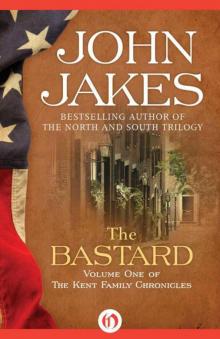 The Bastard
The Bastard The Furies
The Furies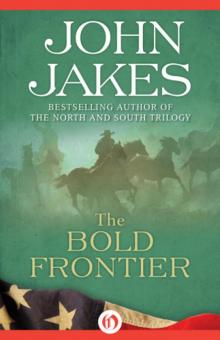 The Bold Frontier
The Bold Frontier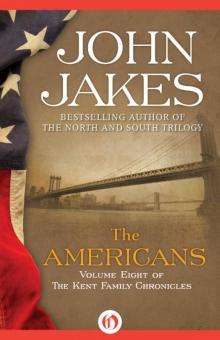 The Americans
The Americans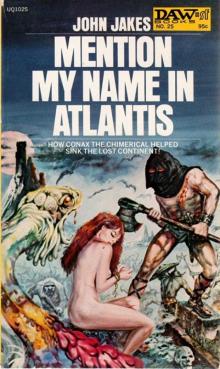 Mention My Name in Atlantis
Mention My Name in Atlantis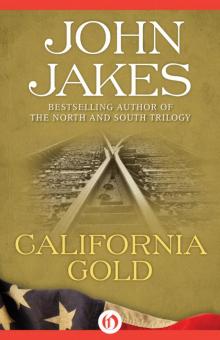 California Gold
California Gold North and South
North and South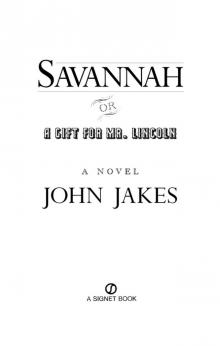 Savannah, or a Gift for Mr. Lincoln
Savannah, or a Gift for Mr. Lincoln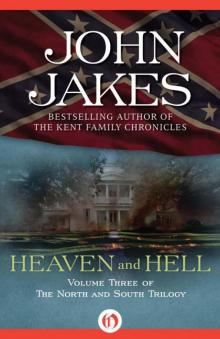 Heaven and Hell
Heaven and Hell Homeland
Homeland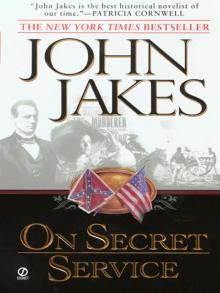 On Secret Service
On Secret Service The Lawless
The Lawless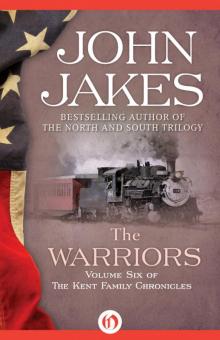 The Titans
The Titans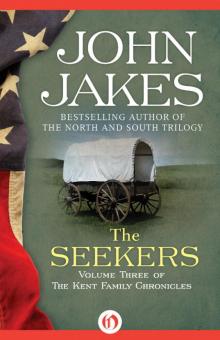 The Seekers
The Seekers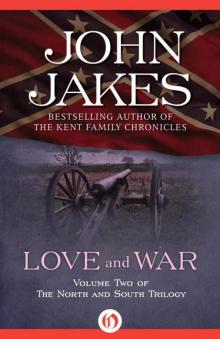 Love and War
Love and War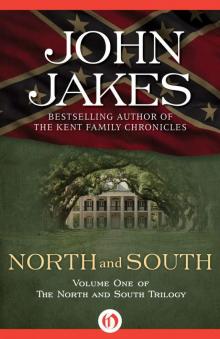 North and South: The North and South Trilogy (Book One)
North and South: The North and South Trilogy (Book One)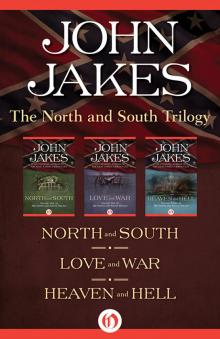 North and South Trilogy
North and South Trilogy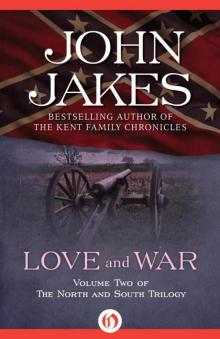 Love and War: The North and South Trilogy
Love and War: The North and South Trilogy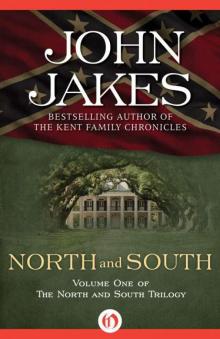 North and South: The North and South Trilogy
North and South: The North and South Trilogy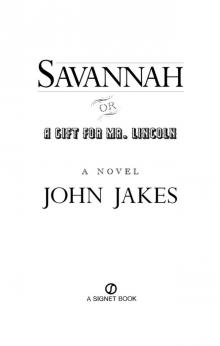 Savannah
Savannah Lawless
Lawless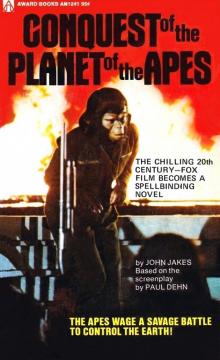 Conquest Of The Planet Of The Apes
Conquest Of The Planet Of The Apes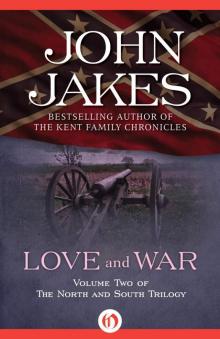 Love and War: The North and South Trilogy (Book Two)
Love and War: The North and South Trilogy (Book Two)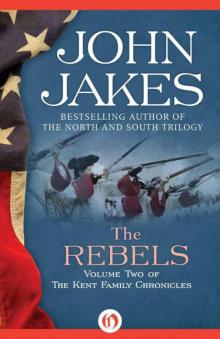 The Rebels: The Kent Family Chronicles
The Rebels: The Kent Family Chronicles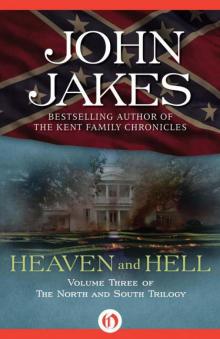 Heaven and Hell: The North and South Trilogy
Heaven and Hell: The North and South Trilogy Planet of the Apes Omnibus 2
Planet of the Apes Omnibus 2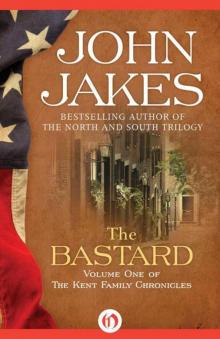 The Bastard: The Kent Family Chronicles
The Bastard: The Kent Family Chronicles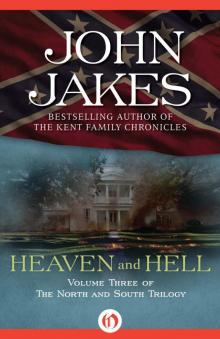 Heaven and Hell: The North and South Trilogy (Book Three)
Heaven and Hell: The North and South Trilogy (Book Three)